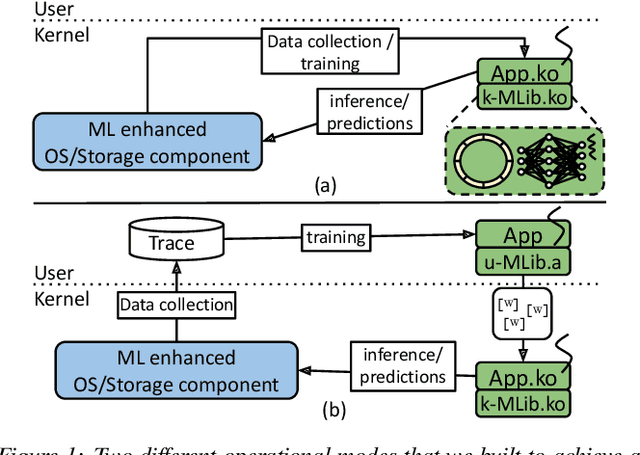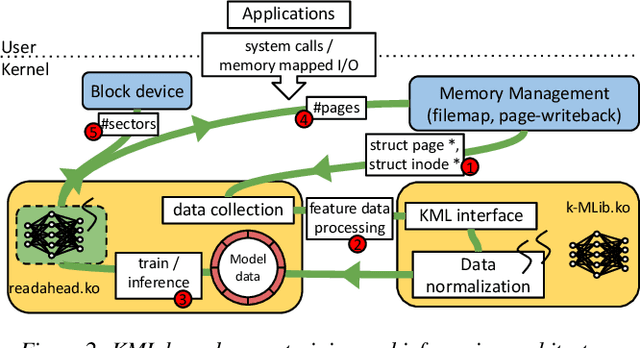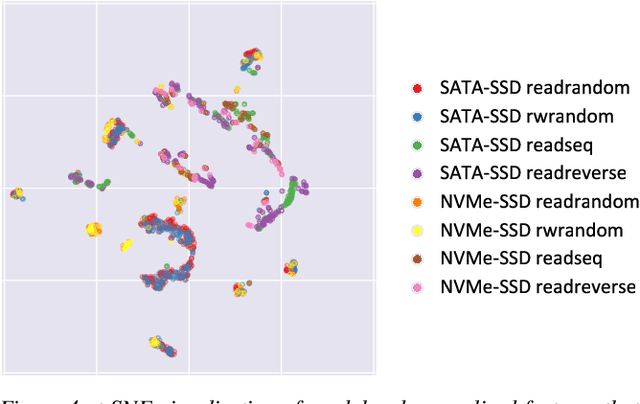KML: Using Machine Learning to Improve Storage Systems
Paper and Code
Nov 22, 2021



Operating systems include many heuristic algorithms designed to improve overall storage performance and throughput. Because such heuristics cannot work well for all conditions and workloads, system designers resorted to exposing numerous tunable parameters to users -- essentially burdening users with continually optimizing their own storage systems and applications. Storage systems are usually responsible for most latency in I/O heavy applications, so even a small overall latency improvement can be significant. Machine learning (ML) techniques promise to learn patterns, generalize from them, and enable optimal solutions that adapt to changing workloads. We propose that ML solutions become a first-class component in OSs and replace manual heuristics to optimize storage systems dynamically. In this paper, we describe our proposed ML architecture, called KML. We developed a prototype KML architecture and applied it to two problems: optimal readahead and NFS read-size values. Our experiments show that KML consumes little OS resources, adds negligible latency, and yet can learn patterns that can improve I/O throughput by as much as 2.3x or 15x for the two use cases respectively -- even for complex, never-before-seen, concurrently running mixed workloads on different storage devices.
 Add to Chrome
Add to Chrome Add to Firefox
Add to Firefox Add to Edge
Add to Edge